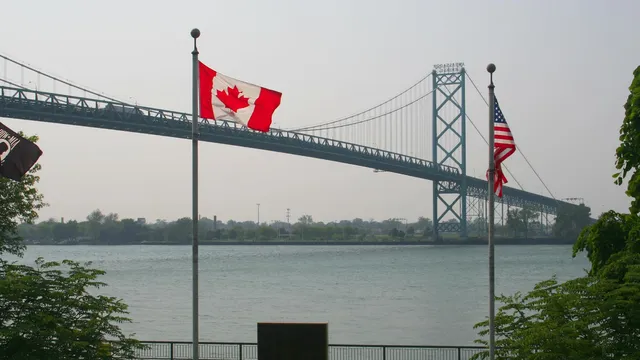
International tourists boycott the U.S. causing $10 billion loss
2025-05-12 00:00- International visits to the U.S. have fallen by 12% year-over-year as of March 2025.
- A significant reduction in Canadian travel is contributing to an expected loss of $10 billion in tourism revenue for the U.S.
- The decline in international tourism could have serious consequences for businesses and jobs in the U.S. hospitality sector.
Express your sentiment!
Insights
In 2025, the United States is experiencing a significant downturn in international tourism, largely due to rising tensions surrounding trade and immigration policies. Published reports indicate that foreign visits to the U.S. dropped by 12% year-over-year in March, with summer bookings from Canada down more than 30%. Such declines indicate a troubling trend for American businesses and destinations that rely heavily on international visitors for revenue. This decreases tourism revenue by an expected $10 billion compared to the previous year, signaling a potentially devastating impact on a sector that supports numerous jobs across the country. The U.S. Travel Association highlights that non-residents typically spend significantly more than domestic tourists, making their absence particularly damaging for the economy. The immediate effects are felt in cities that are popular with foreign visitors, such as Las Vegas and New York. Local businesses anticipate a substantial drop in foot traffic during the crucial summer season, a time when tourist dollar support is vital for maintaining operations and employment. A boycott by Canadian travelers significantly contributes to the downturn, stemming from a series of political tensions, including tariff announcements and strong anti-immigration rhetoric from U.S. leadership. The call to avoid traveling to the U.S. was first made by the former Canadian Prime Minister Justin Trudeau, a move that has escalated into a national sentiment resulting in fewer Canadians choosing U.S. destinations. Many Canadians now opt for travel to alternative locations, such as Mexico, where they continue to spend generously. As this trend persists, the ripple effects extend beyond immediate financial losses. According to the U.S. Travel Association, even a 10% reduction in Canadian inbound tourism could jeopardize 140,000 jobs in hospitality and related sectors. With various factors compelling travelers to reconsider the U.S. as a destination, the tourism sector must grapple with a rapidly souring outlook that threatens its viability and resilience moving forward.
Contexts
The impact of a Canadian tourist boycott on the US economy could be significant given the close ties and heavy reliance between the two nations. Canada is one of the largest sources of international tourists to the United States, contributing billions of dollars annually to various sectors such as retail, hospitality, transportation, and entertainment. A decline in Canadian tourists due to a boycott could directly affect local economies, particularly in border states and tourism-heavy areas, leading to potential job losses and decreased revenue for businesses that depend on this influx of visitors. The implications of this boycott might not only hinder economic activity in the short term but could also have lasting effects on certain industries that may struggle to recover their customer base once the boycott concludes or is lifted. Additionally, the economic ripple effects can extend beyond the immediate tourism sector. Reduced spending by Canadian tourists could lead to a decrease in sales tax revenue collected by local and state governments, affecting public services and infrastructure funding. This economic strain may force businesses to implement cost-cutting measures, including layoffs or reduced hours for employees, which may further dampen local economies. Communities that thrive on cross-border tourism may find themselves vulnerable, prompting stakeholders and policymakers to reevaluate their strategies for attracting and retaining tourists in an increasingly competitive landscape. The socio-economic dynamics between the US and Canada are complex and involve shared values, trade agreements, and mutual cooperation. A tourism boycott often emerges from larger geopolitical tensions or policy decisions that may not accurately reflect the sentiment of the general populace. Thus, it is crucial for stakeholders to consider the broader consequences such a boycott may have not only on industries but also on bilateral relations between the two countries. Understanding the motivations behind the boycott and addressing the underlying issues can potentially mitigate the economic fallout while fostering a more collaborative relationship moving forward. In summary, the impact of a Canadian tourist boycott on the US economy presents a multifaceted challenge, largely felt in sectors reliant on cross-border tourism. The ramifications can cascade through local economies, affecting everything from consumer behavior to government funding. By recognizing the interconnectedness of the two nations, it is imperative for both governments and businesses to engage in open dialogue and proactive measures to address grievances and ensure mutual economic benefit. History has shown that resolving differences through communication can lead to a more resilient and cooperative economic landscape.